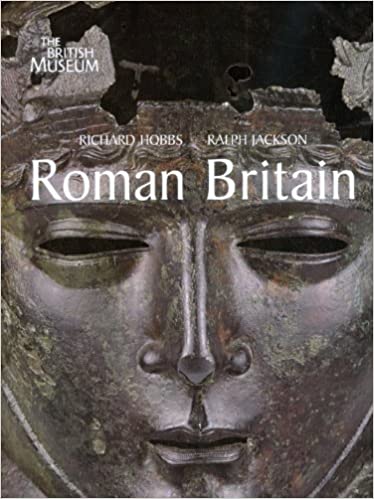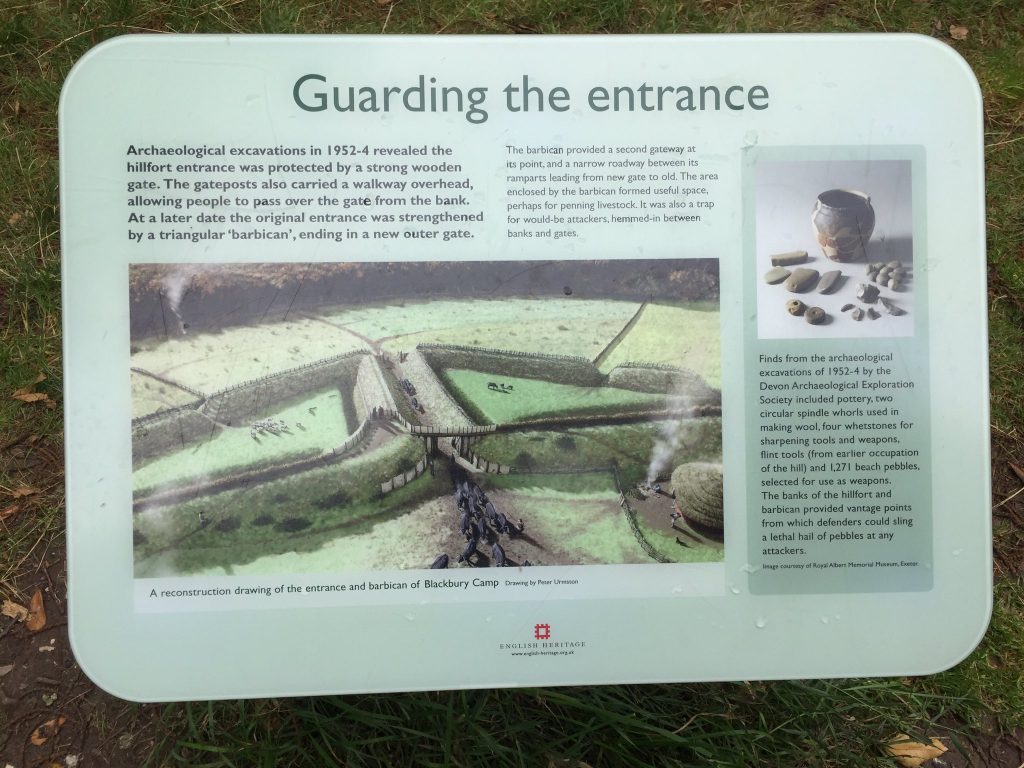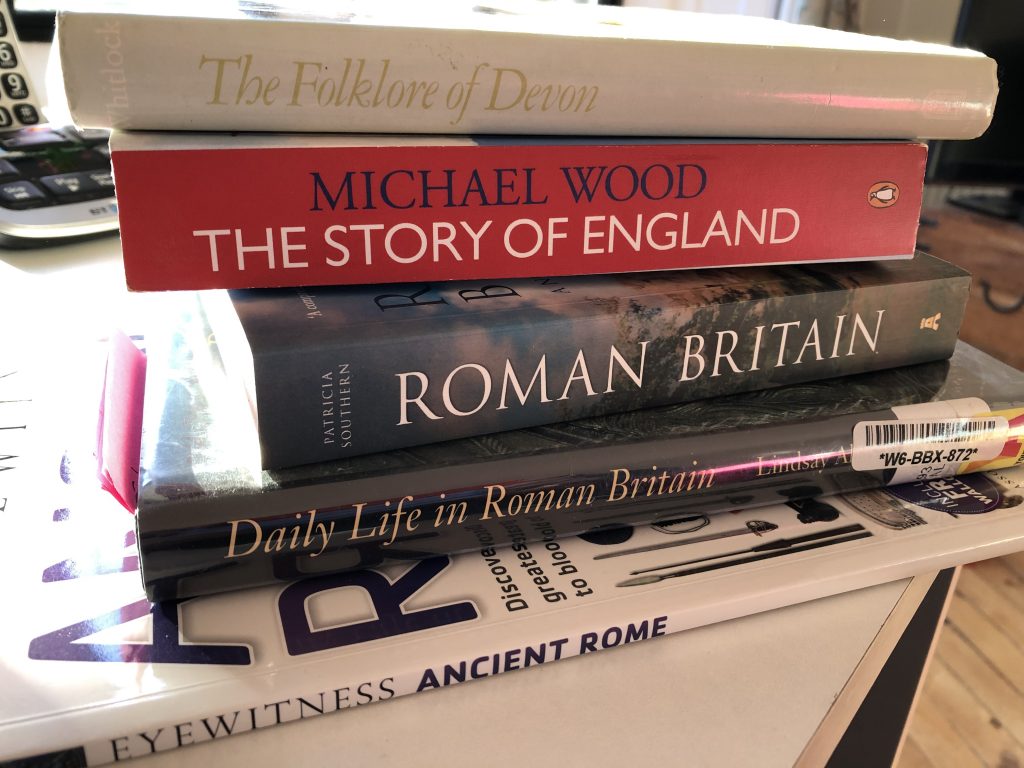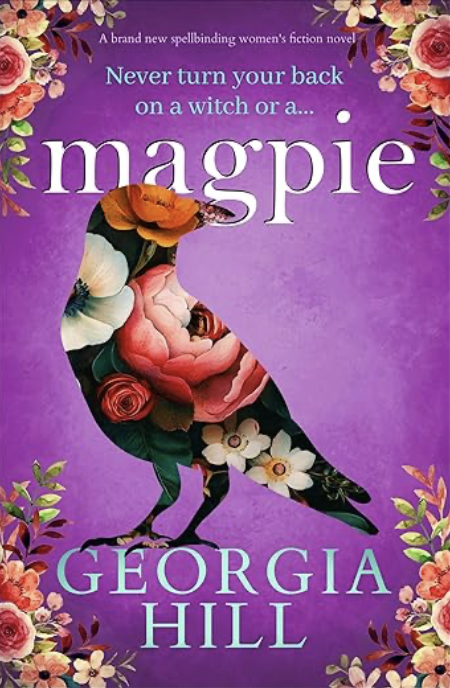I’m deep in the research again.
While waiting on a few submissions, I’ve returned to a dual narrative I began with great enthusiasm a few months ago. (Last year was the year of beginning things only to get interrupted or lose confidence).
It’s set partly at the end of the Roman Empire and in present day Devon so, in terms of research, I’ve got my work cut out.
I’ve a smattering of knowledge about the Romans, know a little about the ancient Britons but, for this one, I also need to know about police procedures, archaeological dig funding and protocol. Will someone please tell me to write about what I know?!
Everyone seemed to invade this part of the south west. The Romans ruled us for over four hundred years, the Anglo-Saxons and Vikings came next and then the Normans. Luckily, we escaped being invaded by the enemy in World War Two but it was a close run thing. They’ve all left their mark. The hill fort tribal homelands can still be seen and walked around, archaeologists are often uncovering evidence of Roman occupation, the Anglo-Saxons left us their language, the Vikings their DNA and you can’t go far before you hit a Norman castle. Even World War Two is still with us. In the town where I live is a concrete pillbox which looks forlornly out to sea, and the Stop Line (a defensive measure against possible invasion) is now a cycle and walkway. Even place names are a clue. Kingsbury Episcopi must be Latin (I’m guessing as I don’t speak it and am now regretting the fact!), anything with the ‘chester’ suffix is Roman as in Dorchester. ‘Ton,’ as well as being Regency Bridgerton-speak for Society, is a Saxon suffix meaning settlement. It’s one reason I find it difficult to invent fictional place names for the east Devon and west Dorset area, where most of my books are set, that give an instant feel for the south west. The prefix ‘Tre’ and you’re in Cornwall. ‘Aber’ and you’re transported to Wales. But this part of England is, dare I say it, a bit of a mongrel in terms of heritage.
However, with this book, place names are the least of my worries. The sheer amount of research needed got to me and I fretted I’d taken on too much. I was even hunting online for a metal detecting code of conduct at one point. There is one by the way.
https://www.thedetectorist.co.uk/metal-detecting/
I’ve said before that, until you begin writing, you don’t know what you don’t know – or need to know and this proved true again. So I went back to the beginning and planned the novel out properly which gave me some idea of what I needed. Then I did some heavy-weight book buying, never a hardship, and began to read.
I also emailed a few people. Unlike other writers who seem never to have a problem finding folk who fall over themselves to help a writer in distress, this one finds it an uphill struggle. There’s a lot of information online but sometimes it’s the finer details that you need and then you have to talk to an actual human. I was getting quite down-hearted by it all when I received a friendly, even chatty response to an email I’d shot off. It restored my faith. I’d bought Caroline Mackenzie’s book on Lullingstone villa already and contacted her with a query on Romano-British water systems. She was gracious and incredibly helpful and I’m very grateful she took time out from her own writing to reply.
The only problem is, through Caroline, I’ve been introduced to a blog which has taken me down another research rabbit hole.
http://the-history-girls.blogspot.com/2022/03/rutland-roman-villa-story-of-remarkable.html
There’s no hope. Send help. And a toga or two.
Love,
Georgia x





So glad my email restored your faith! It was lovely to hear from you and I am always happy to share ideas with others interested in Roman Britain and Latin! It’s good to know my Lullingstone book and blog were helpful, although sorry for sending you down another rabbit hole…!
Your new project sounds great and I look forward to reading it when it is published. Good luck with your ongoing research and enjoy the writing!
Best wishes,
Caroline
Thank you so much for the help and advice, Caroline. It’s so very much appreciated!